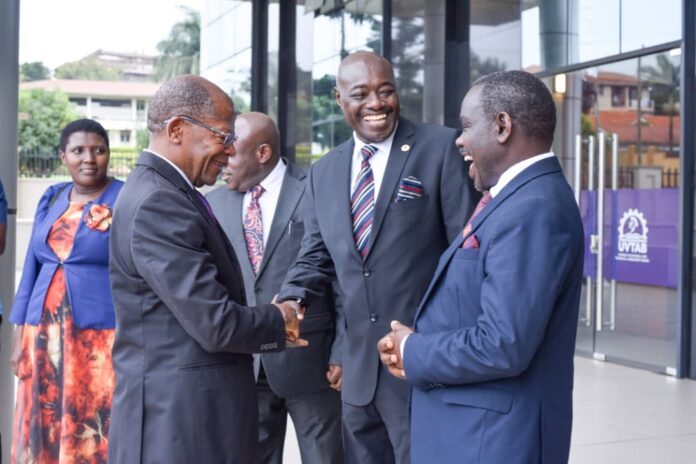The First Lady and Minister of Education Janet Kataaha Museveni, has applauded the strides made in Uganda’s Technical and Vocational Education and Training (TVET) sector, noting that the government’s reforms are beginning to yield tangible results in building a skilled and employable workforce.
Delivering her remarks during the release of the May–June 2025 Uganda Vocational and Technical Assessment Board (UVTAB) assessment results, Hon. Museveni—represented by the Minister of State for Higher Education, Hon. Dr. John Chrysestom Muyingo—hailed the newly established TVET structures as critical pillars in transforming Uganda’s skills development landscape.
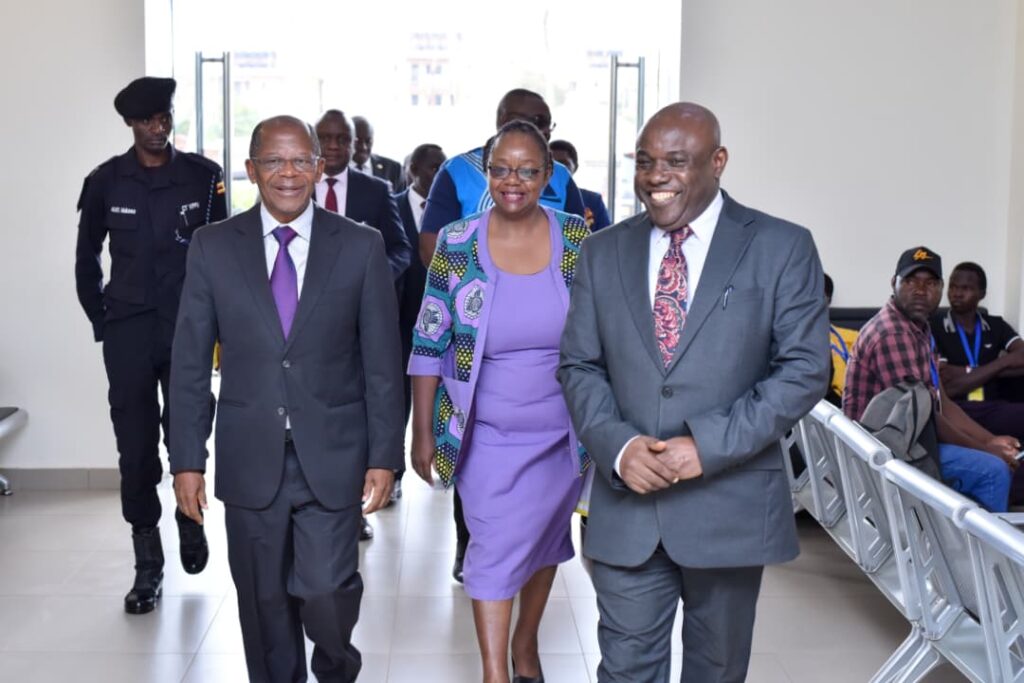
“I am glad that TVET reforms have taken off with the existing TVET system and agencies created, including the TVET Council and the Assessment Boards,” she said. “These entities will play a key role in realizing the reforms guided by the regulatory arm, delivery, and assessment in line with the TVET Act 2025 that commenced on 15th March this year.”
Hon. Museveni emphasized the importance of strong partnerships with professional bodies, industry associations, and international TVET providers to ensure that Uganda’s training curricula remain globally competitive and responsive to market needs.
“The industry’s input will ensure our curricula and training packages are not only relevant but also meet the highest global standards,” she added. “This alignment is essential for producing employable artisans, technicians, technologists, and other professionals who can contribute to our industrialization agenda.”
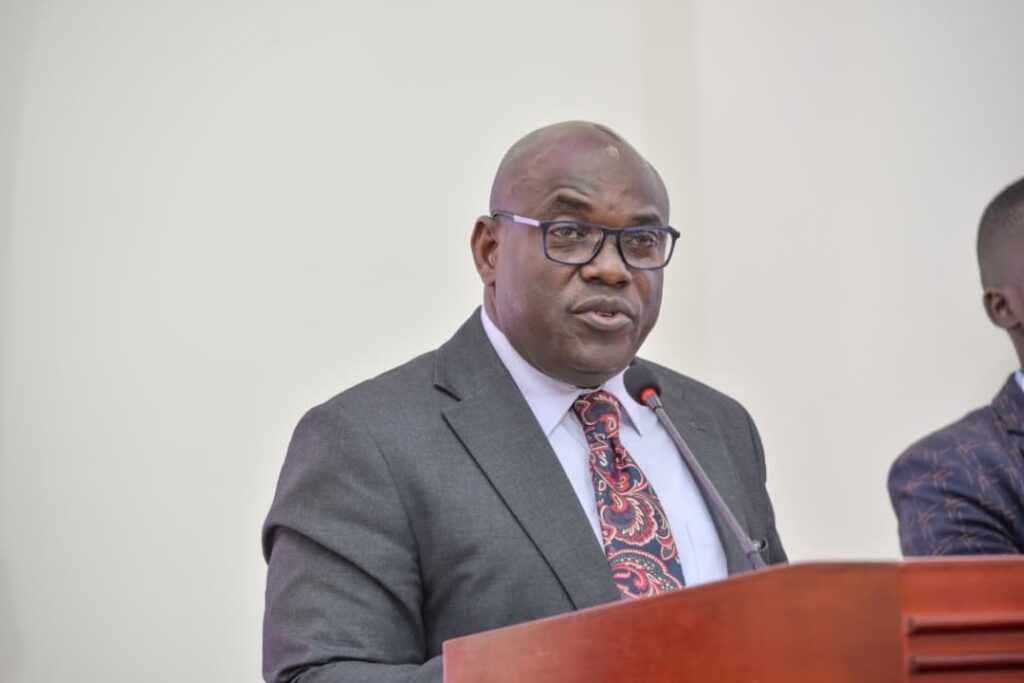
The First Lady commended the UVTAB Board, chaired by Prof. Eng. Dorothy Okello, for the milestones achieved since its inauguration in July 2025. She also applauded the collaboration between the Ministry of Public Service and the Ministry of Education and Sports in developing and validating UVTAB’s staff structure.
Highlighting the results, Hon. Museveni celebrated the growing participation of women in vocational and technical training.
“Out of the 24,116 candidates who successfully completed their training programs and assessment, 14,188 were women,” she said. “This is an encouraging sign of government efforts to promote gender equity in access to TVET.”
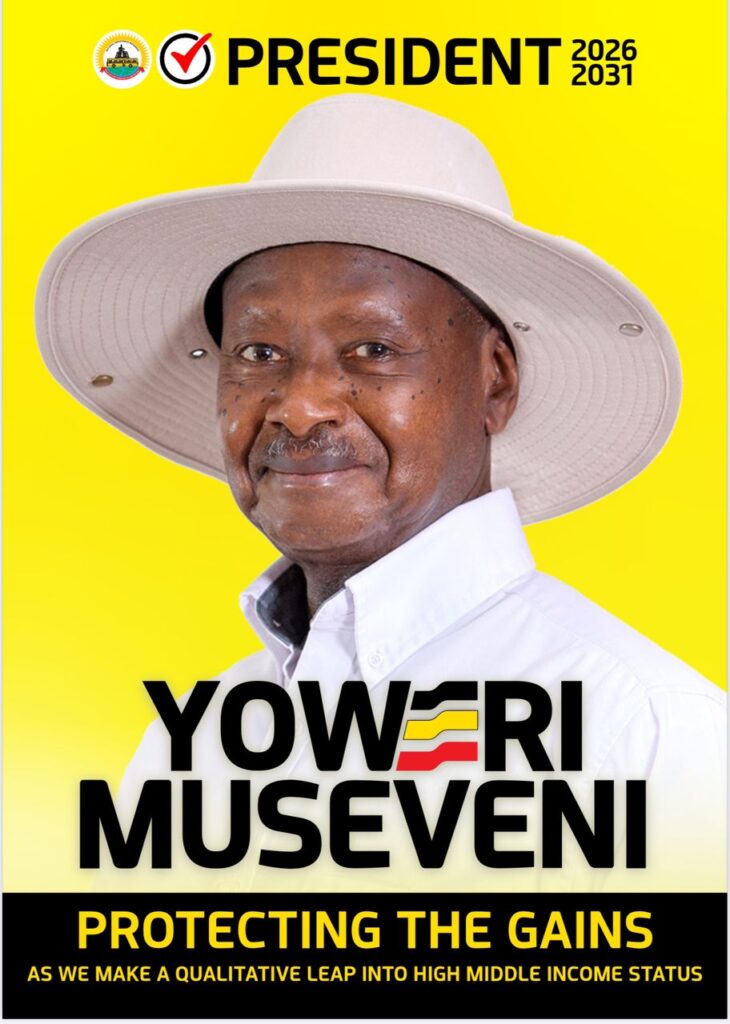
She described the achievement as proof of Uganda’s collective dedication to empowering young people with skills that align with the nation’s industrial and economic transformation goals.
Hon. Museveni hailed the establishment of UVTAB’s National Skills Assessment Centre, describing it as a state-of-the-art facility that will advance innovation, research, and quality assurance in vocational training.
“Once fully equipped and operational, the Centre will enhance our capacity to deliver high-quality assessments, uphold standards, and ensure credibility in certification,” she noted.
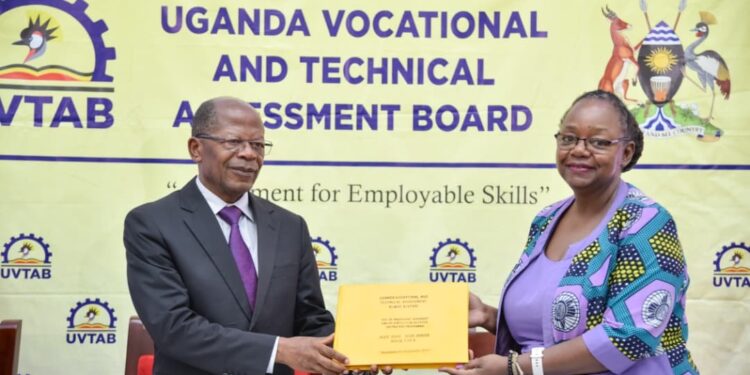
She further called upon the TVET Council to expedite the operationalization of the comprehensive TVET Qualifications Framework, which will define clear career pathways, facilitate recognition of skills by industry, and enhance trainee mobility.
The First Lady reaffirmed government’s unwavering commitment to strengthening the TVET sub-sector under the NRM administration, guided by the vision of H.E. President Yoweri Kaguta Museveni.
She cited several ongoing initiatives, including the Uganda Refugee and Host Communities Project, valued at USD 8.7 million, which supports the rehabilitation and equipping of Skills Development Centres in Inde (Madi-Okollo), Omugo (Terego), and Buhungiro (Isingiro). Nine additional technical institutes—Lutunku, Kabale, St. Kizito (Masaka), Nkoko, Nalwire, Moroto, Moyo, and Birembo Memorial—are also being rehabilitated.
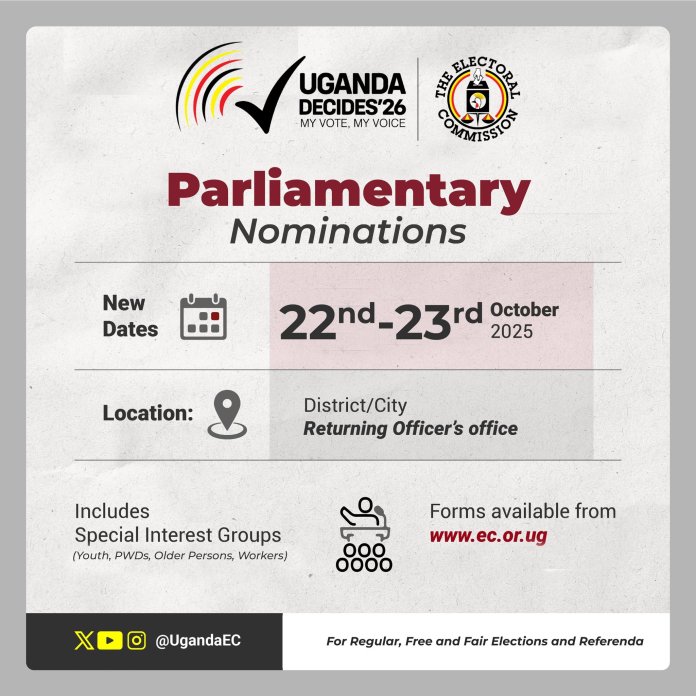
In addition, the government is expanding access to secondary and teacher education through the Uganda Secondary Education Expansion Project (USEEP)—which includes construction of 116 new secondary schools and expansion of 61 existing ones—and the Uganda Learning Acceleration (ULEARN) program, which will rehabilitate 121 traditional secondary schools, 29 teacher training institutions, and 66 special needs education (SNE) institutions.
“These transformative developments reflect our government’s commitment to inclusive education and skills development,” she said.
Hon. Museveni also called for continued engagement with international accreditation bodies, development partners, and technical universities to adopt global best practices and expand opportunities for Ugandan trainees abroad.
In her closing remarks, she congratulated the successful candidates and their families, describing them as the cornerstone of Uganda’s future workforce.
“Your resilience and dedication are instrumental in transforming Uganda’s workforce,” she said. “Your skills are the backbone of national development.”
Presenting the results earlier, Mr. Onesmus Oyesigye, Executive Secretary of UVTAB, reported steady progress in vocational skills development across the country.
The assessments were conducted between May 2 and June 27, 2025, in 499 centres nationwide. Of these, 306 centres (61%) served candidates from formal TVET programs, while 193 centres (39%) assessed those trained through informal or non-institutional means.
A total of 30,291 candidates registered, including 17,245 females (57%) and 13,046 males (43%). Of these, 26,610 (88%) turned up for the assessments, with 24,116 (91%) successfully attaining full competences.
Informally trained candidates outperformed their formally trained counterparts, posting a 96% completion rate compared to 81% from formal institutions.
Female candidates also excelled, with 92% achieving full competences compared to 89% of males.By discipline, Technology Education and Training attracted the highest enrolment with 14,475 candidates (48%), followed by Home Science Education (29%), Business Education (15%), and Agriculture Education (8%).
Mr. Oyesigye also noted that 109 special needs candidates participated, of whom 83% attained full competences.
“The general performance was impressive, with most programmes recording completion rates above 75 percent,” he said.
He reaffirmed the Board’s commitment to ensuring that assessment processes remain credible, inclusive, and industry-oriented, in line with Uganda’s national skilling agenda.


